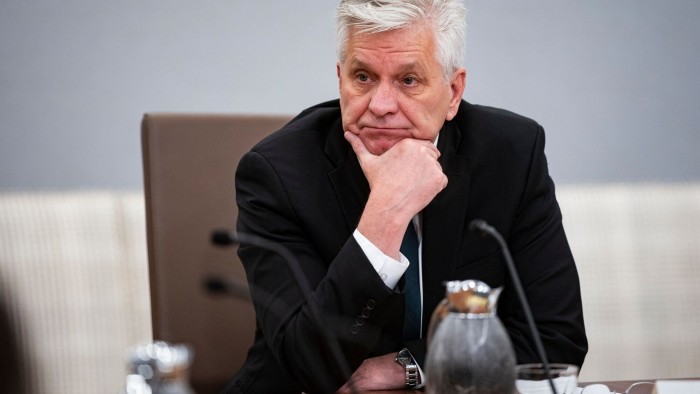Unlock the White House Watch newsletter for free
Your guide to what the 2024 US election means for Washington and the world
A top US central banker has played down the prospect of Donald Trump’s trade war stoking inflation, highlighting divisions among Federal Reserve rate-setters on the impact of sweeping tariffs.
Christopher Waller said in Australia on Tuesday morning that Trump’s tariffs would “only modestly increase prices and in a non-persistent manner” — a signal the Fed governor believes the new administration’s trade policies should not affect the central bank’s decision-making.
“I favour looking through these effects,” Waller said.
Strong growth and sticky price pressures have left the Fed in wait-and-see mode, with uncertainty over the impact of the trade policies adding to central bankers’ reluctance to cut interest rates despite Trump’s claims that US borrowing costs need to fall “a lot”.
The Fed’s benchmark target range is now 4.25-4.5 per cent, following 1 percentage point of cuts in late 2024.
The rate-setting Federal Open Market Committee is united in thinking US short-term rates need to remain on hold for now.
But some of its members, such as the Chicago Fed president Austan Goolsbee and Cleveland Fed head Beth Hammack, are more concerned than Waller that Trump’s trade policies will have a more enduring affect on US prices.
Fed chair Jay Powell insists the FOMC does not yet have the evidence to make a reasonable call on which direction trade policy will drive prices.
So far, the only tariffs that have been implemented are 10 per cent levies on all Chinese imports. Trump has also threatened to impose 25 per cent charges on all imports from two of the US’s biggest trading partners — Mexico and Canada, with a decision set for early March.
A 25 per cent levy on aluminium and steel imports has been proposed for mid-March, as has the threat of reciprocal tariffs on countries the administration believes are hitting US companies through steep trade barriers or higher taxes.
Waller said, while the data was “not supporting a reduction in the policy rate at this time”, inflation could fall back over the coming quarters because companies tended to raise their prices at the start of the year. US inflation unexpectedly rose to 3 per cent in January, reinforcing expectations the Fed will not imminently lower borrowing costs.
“[I] will watch the data over the next few months to evaluate if we are having what looks like a repeat of high first-quarter inflation data that could be followed by lower readings later in the year,” he said.
He added: “If 2025 plays out like 2024, rate cuts would be appropriate at some point this year.”
Waller also said monetary policy could not be put on hold indefinitely, despite uncertainty over what sort of economic policies the White House would unveil.
“If incoming data supports further rate cuts or staying on pause, then we should do so regardless of how much clarity we have on what policies the administration adopts,” he said. “Waiting for economic uncertainty to dissipate is a recipe for policy paralysis.”
Read the full article here
